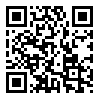2- Islamic Azad University, Roudehen. ,
3- Islamic Azad University, Roudehen.
The aim of the present study was to fit the mind-reading model based on childhood trauma and perceived stress, considering the mediating role of emotional intelligence. In this correlation study, 336 students of Roudehen Azad University were selected through convenience sampling in the academic year 2021-2022. To collect data for this study, Schott's Emotional Intelligence Questionnaire (SSEIT) (1990), the Mental Image Test (RMET) for measuring mind-reading, Cohen's Perceived Stress Questionnaire (PSS) (1983), and Bernstein's Childhood Trauma Questionnaire (CTQ) (2003) were used. Data analysis was performed using Pearson's correlation method with SPSS-27 software and structural equations with the bootstrap method with AMOS-26 software. The findings showed that childhood trauma, perceived stress, and emotional intelligence have a significant effect on students' mind-reading. In addition, emotional intelligence plays a mediating role in the relationship between childhood trauma and perceived stress in students' mind reading. Accordingly, it seems that students' emotional intelligence reduces the effect of past traumas and negative perceptions of stress on their mind reading.
Received: 2024/09/27 | Revised: 2025/04/17 | Accepted: 2025/05/29 | ePublished ahead of print: 2025/07/24 | Published: 2025/08/1
| Rights and permissions | |
 |
This work is licensed under a Creative Commons Attribution-NonCommercial 4.0 International License. |




